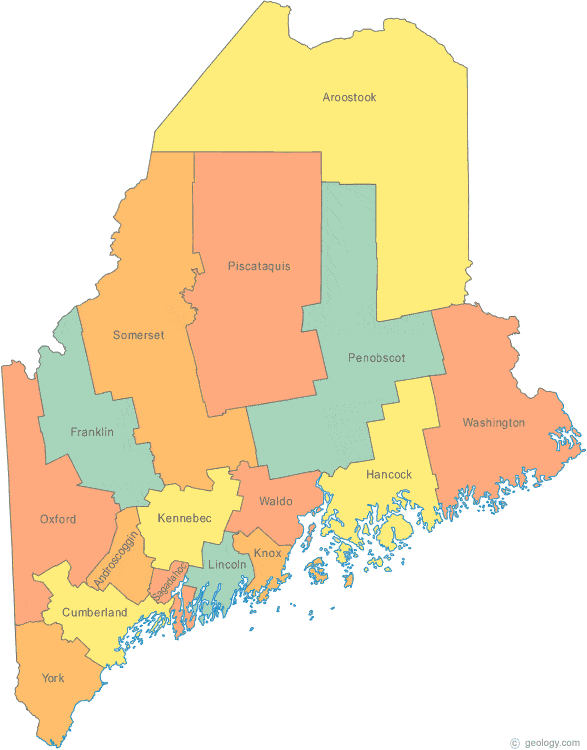A
couple weeks ago, former Maine Democratic senator George Mitchell came to my
campus to give a speech called “Healing Our Democracy.” He spoke extensively
about the social and political factors that have contributed to our current dysfunction
and polarization in the federal government. Although Senator Mitchell offered a
few procedural steps that the government could take to get on the right track,
such as getting money out of elections and doing away with gerrymandering, his
major point was that the most important thing we , as citizens, could do to
restore our country is to work from the ground up. He said we need to learn how
to listen to each other and build a community that responds to all of our
desires.
 The sleepy state of Maine has been in the news a lot
lately, mostly thanks to the perennial swing vote of Senator Susan Collins, but
Maine is especially notable for its independent streak. We have a history of
female Republican senators who have on occasion bucked the trend of their
parties. Although Maine usually votes for the Democratic presidential candidate,
the state actually splits its electoral votes based on the results in each of
its two districts, and in 2016 my district gave an electoral vote to Donald
Trump. We have the only Republican senator and Republican representative in all
of New England. We recently voted to enact ranked choice voting for federal elections,
which should ideally give independents a fighting chance and bridge the divide
between the two major parties. We have automatic voter registration and no
voter ID laws. And we have a Clean Election Fund, which provides public
election funding in exchange for collecting no more than $5 donations from any
individual.
The sleepy state of Maine has been in the news a lot
lately, mostly thanks to the perennial swing vote of Senator Susan Collins, but
Maine is especially notable for its independent streak. We have a history of
female Republican senators who have on occasion bucked the trend of their
parties. Although Maine usually votes for the Democratic presidential candidate,
the state actually splits its electoral votes based on the results in each of
its two districts, and in 2016 my district gave an electoral vote to Donald
Trump. We have the only Republican senator and Republican representative in all
of New England. We recently voted to enact ranked choice voting for federal elections,
which should ideally give independents a fighting chance and bridge the divide
between the two major parties. We have automatic voter registration and no
voter ID laws. And we have a Clean Election Fund, which provides public
election funding in exchange for collecting no more than $5 donations from any
individual.
This year, Maine has a couple of contentious elections. Former
marine and state house representative Jared Golden is running to unseat our
Republican incumbent Bruce Poliquin. Although the polls show that race as a
toss-up and Golden is hoping to ride the blue wave, no incumbent has ever been
defeated in northern Maine in over a hundred years. Attorney General Janet
Mills and businessman Shawn Moody are in another toss-up race to replace the
oft maligned governor Paul LePage, who is getting termed out this year. The
local Democrats see this year as an opportunity to win both houses of Congress
and the governor’s mansion, giving them an excellent chance to deliver on their
agenda.
My volunteer work for Jim Dill involved managing his
Facebook page, stuffing mailers, and driving him up and down through rural Maine.
Jim’s campaign style is to spend as much time as possible interacting with his
constituents, either in one on one conversations or at larger social events. Over
the last three months, we have visited around 6,000 people, and he has asked every
one of them about their concerns. Surprisingly, national politics don’t play
much of a role in the concerns of most Mainers. They are much more concerned
about the opioid crisis, creating new jobs, and access to health care than
anything going on in DC. Almost everybody we talked to, even the Republicans,
said they were more likely to vote for Jim Dill just because he made the effort
to come to their houses and talk with them.
By working with Jim, I’ve learned that there is a bright
side to the dirty, partisan politics that plagues our country. There are still
many politicians out there that genuinely want to help their communities, and
people who have real problems that need to be addressed. Although there are
deep divisions between the Maine parties, they are still willing to work
together at times to address domestic, economic, and environmental issues. And
that by far the best way to engage in local politics is not through money or
the Internet, but by talking to people, one constituent at a time.
October is a relatively sleepy month in politics. July and
September are the most important months to convince the public to vote for you,
and the first week of November is the most important time to actually get
everyone to vote. If you want to do what you can to help and it’s not too late
to register in your state (https://www.vote.org/voter-registration-deadlines/),
I would recommend you take some time in the next couple weeks helping people get
registered to vote. You can do the most good on college campuses and low income
communities, where people have less access to voting resources and are very
often overlooked. Otherwise, get in touch with your local candidates and ask if
you can help canvassing or phone banking. Let’s do what we can to heal this
country from the ground up.


No comments:
Post a Comment
Leave a comment